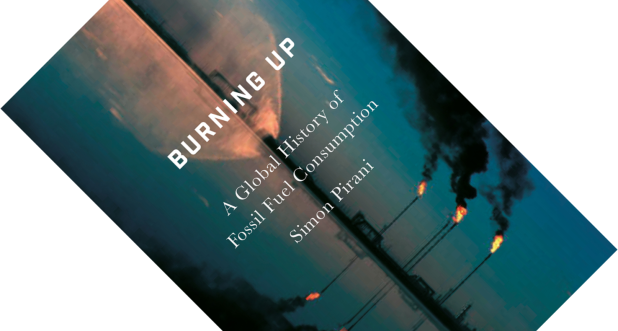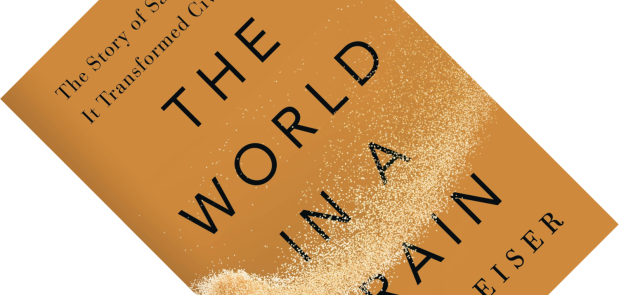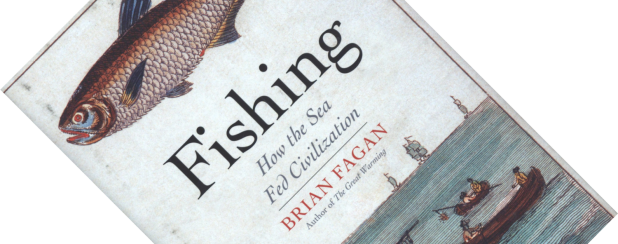American author Paul Greenberg has written two previous books about (eating) fish (American Catch: The Fight for Our Local Seafood and Four Fish: A Journey from the Ocean to Your Plate), so he is no stranger to the rather, errr, fishy topic of omega-3 fatty acid supplements. His new book, The Omega Principle, is much more than just a critique of the supplement industry though. This engagingly written reportage digs far deeper, asking where this oil comes from, and reports on that vast segment of the global fishing industry known as the reduction industry, and a food system out of whack with our needs.
natural resources
Book review – Energy: A Human History
The story of human progress is intimately entwined with that of energy. Pulitzer-prize winning author Richard Rhodes here takes the reader on a 400-year tour of energy generation, shining a light on the many forgotten figures whose ingenuity and inventions were instrumental in the many energy transitions.
Book review – Burning Up: A Global History of Fossil Fuel Consumption
Fossils fuels have powered civilization since the Industrial Revolution, and their consumption has exploded in the last few decades. But for all the prosperity that coal, gas, and oil have brought, there are many downsides, not least amongst these climate change. So how did we get here? Usual explanations point at individual consumption and population growth, and I would be quick to agree. With Burning Up, Simon Pirani, a visiting research fellow at the Oxford Institute for Energy Studies, basically says “not so quick, things are not that simple” and provides a deeply researched history of fossil fuel consumption.
Book review – The World in a Grain: The Story of Sand and How It Transformed Civilization
Human civilisation is hungry for many resources, and I feel that there is a general awareness that we are taking more than the planet can provide. Deforestation, overfishing, fossil fuel exploitation – I’d like to think these are all familiar concepts. But who knew that we have a sand crisis looming in our near future? Journalist Vince Beiser has written a hard-hitting reportage that convinces that, despite its ubiquity, even humble grains of sand are a finite resource.
Book review – The Curious Life of Krill: A Conservation Story from the Bottom of the World
Krill is one of those enigmatic invertebrate groups that feeds whole ocean ecosystems but remains itself little known. Even to a biologist such as myself (who has studied fish for crying out loud!), these critters are largely a set of question marks. I mean they are crustaceans, swim in the sea, are numerous and… oh look, a blue whale!
Book review – Fishing: How the Sea Fed Civilization
Brian Fagan is a celebrated archaeologist and author who has written many books on the topic of environmental history. Several of these sit on my shelves, though I admit this is the first book by his hand that I have read. With Fishing, Fagan presents a deep history of fishing from the time of our human ancestors up to the present day, highlighting its overlooked role in the history of human civilization. His story spans the globe and pieces together a fragmented and complicated puzzle.
Book review – Deep-Sea Fishes: Biology, Diversity, Ecology and Fisheries
It has become cliché to say that we know more about the surface of Mars than we do about the depths of our oceans, inaccessible as they are to us landlubbers. Nevertheless, technological advances have allowed us to discover more and more about the denizens of the deep. Anyone who has watched Blue Planet II or similar recent documentaries can testify to the bizarre and wonderful life forms that can be found there.
Book review – All the Boats on the Ocean: How Government Subsidies Led to Global Overfishing
This book presents a historical analysis of overfishing, following up on her 2012 book All the Fish in the Sea: Maximum Sustainable Yield and the Failure of Fisheries Management. Though many reviews have been written on overfishing, and everyone agrees that too many fishing boats have been built, Finley contends that the question is never asked who built these boats in the first place. Her analysis aims to show that government policies, especially during the Cold War (1946-1990), have been responsible, with subsidies for the fishing industry being a proxy to attain other goals. As the opening sentence puts it: fishing has always been about more than just catching fish. The US-side of the story is scrutinised most intensely, though developments in other nations are covered at length.








